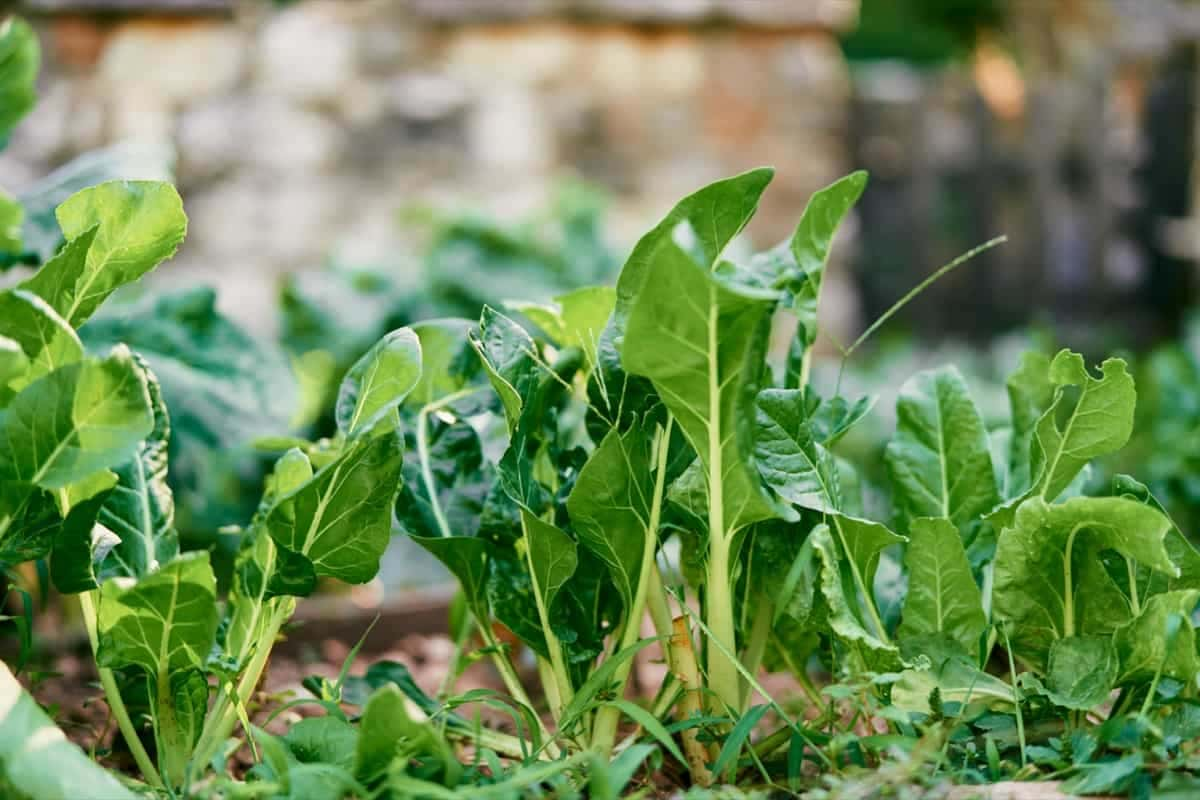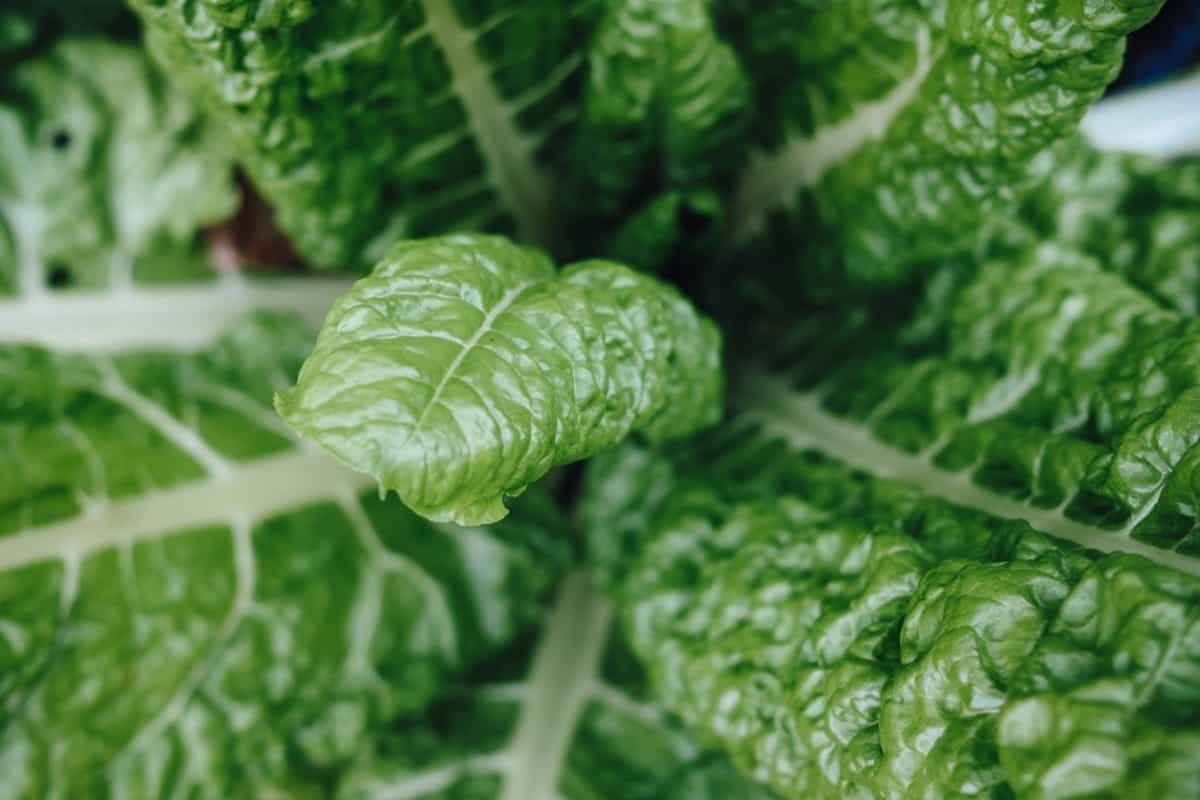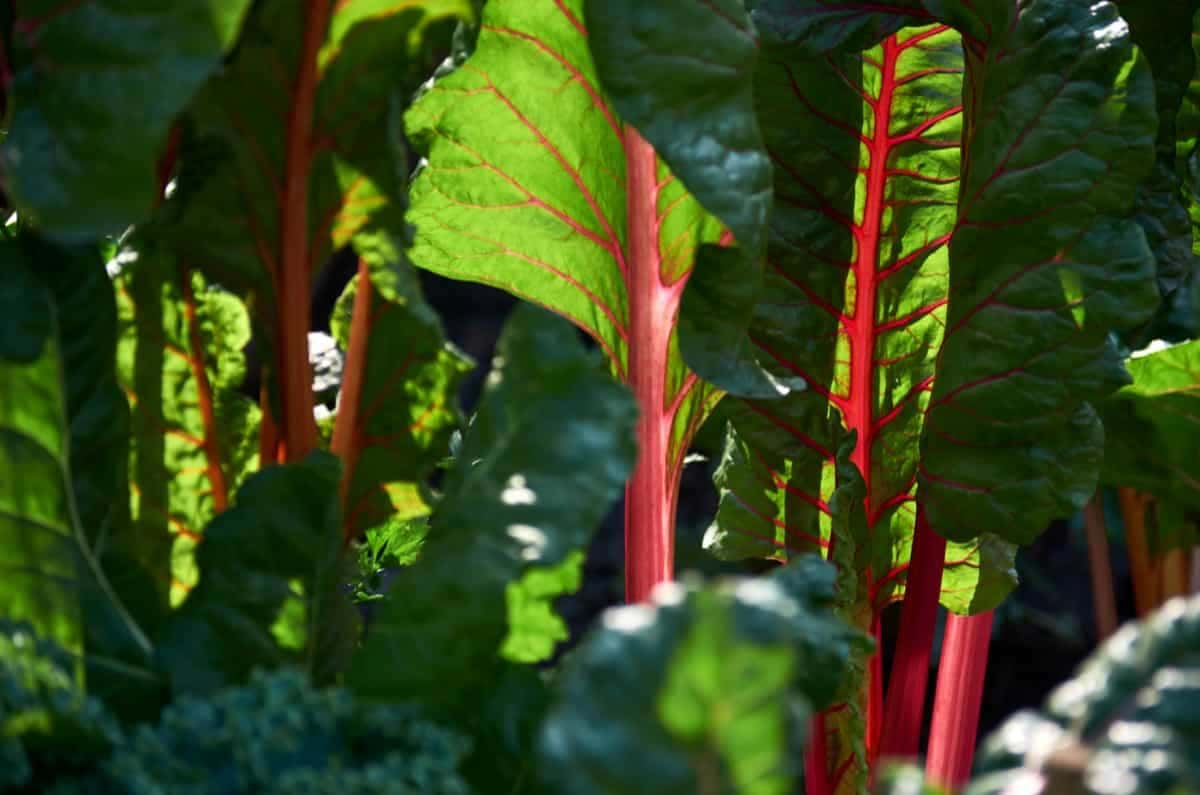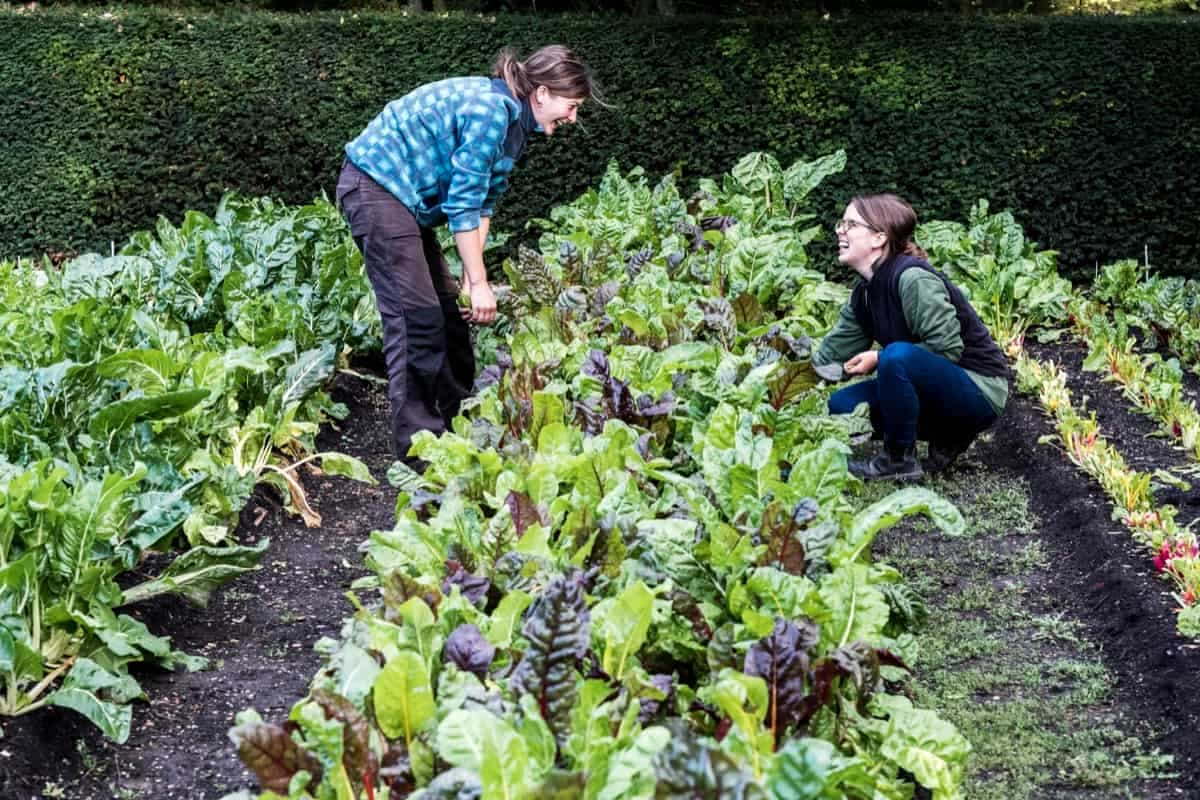Swiss chard, a powerhouse of nutrition and an eye-catching beauty in the garden is delicious and benefits from companion planting. By aligning Swiss chard with beneficial plants, gardeners can maximize the health and yield of their crops. Here, we’ll delve into companion planting, particularly regarding Swiss chard companion plants, their benefits, what grows well with Swiss chard, and what you should not plant next to Swiss chard.

Benefits of Companion Plants for Swiss Chards in the Garden
Companion planting, a time-tested gardening method, leverages the natural strengths of certain plants to help each other thrive. When it comes to Swiss chard companion plants’ benefits, the advantages are numerous. These benefits include pest deterrence, improved pollination, soil enrichment, space optimization, and aesthetic enhancement. By considering the best companion plants for Swiss chard, we tap into nature’s synergies and create a resilient and productive garden ecosystem.
Best Companion Plants for Swiss Chards to Deter Pests
To deter pests, the best companion plants for Swiss chard often have strong scents that bugs find unpleasant. These plants can act as a line of defense, repelling harmful insects while attracting beneficial ones. For instance, planting chives or garlic near Swiss chard can help ward off aphids, a common pest. Another beneficial companion is radishes, which can distract leaf miners, drawing them away from your Swiss chard. By making these strategic plant pairings, gardeners can significantly reduce their dependence on artificial pesticides, resulting in healthier soil and produce.
Swiss Chard Companion Plants for Improved Pollination
Companion plants for Swiss chard also play a crucial role in boosting pollination. Flowers like borage and marigold are great for this purpose. These blooms attract bees and other pollinators to the garden, thus enhancing the pollination of all plants, including Swiss chard. Additionally, these flowers contribute to the garden’s overall beauty, providing a feast for both the eyes and the beneficial insects.
Companion Plants for Swiss Chard in Containers
Even in container gardening, the practice of companion planting holds significant value. Companion plants for Swiss chard in containers include smaller herbs and flowers, ideal for this compact gardening style. Herbs like dill, basil, and rosemary can effectively share container space with Swiss chard. Not only do these herbs provide great companion benefits, but they also allow for a variety of harvests from a single container.
In case you missed it: Aquaponic Tomatoes: A Step-by-Step Growing Guide for Beginners

Companion Herbs for Swiss Chards in Organic Gardening
In organic gardening, where synthetic fertilizers and pesticides are avoided, companion herbs for Swiss chards offer a natural way to optimize plant health. Herbs like dill and basil repel unwanted pests, while others like comfrey help enrich the soil with essential nutrients. Mint, a powerful pest deterrent, is another great Swiss chard companion herb. However, because of its invasive nature, it should be planted in a separate pot and placed nearby.
Flowering Companion Plants for Swiss Chards to Attract Beneficial Insects
Integrating flowering companion plants for Swiss chards in the garden serves a dual purpose. Flowers such as marigolds, nasturtiums, and calendula bring vivid colors to the garden, enhancing its visual appeal. Secondly, they attract beneficial insects. These insects are essential for pollination and keep pest populations under control, contributing to the overall health of the Swiss chard.
Companion Vegetables for Swiss Chards in Raised Beds
Companion vegetables for Swiss chards in raised beds include onions, radishes, and carrots. These veggies take advantage of the vertical space by growing downwards, thus complementing the upward growth of Swiss chard. This strategy optimizes space usage and can lead to a higher yield in the same garden area. Besides, these vegetable companions also help deter pests, and their growth patterns ensure they don’t compete with Swiss chard for nutrients.
Companion Plants for Swiss Chards to Improve Soil Fertility
Certain companion plants for Swiss chards are known to improve soil fertility, enhancing the overall health and yield of the garden. Legumes, for instance, have the natural ability to fix atmospheric nitrogen, thus enriching the soil. This makes beans and peas great companions for Swiss chard, providing a steady source of this crucial nutrient. Green manure crops like clover and vetch can also boost soil fertility, benefiting Swiss chard and other garden plants.
Companion Plants Chart for Swiss Chards in the Garden
Having a Swiss chard companion plants chart can be a handy tool for a practical approach. Such a chart would list the best companion plants for Swiss chard and those to avoid. For example, beneficial companions like beans, onions, and radishes would be highlighted alongside those plants to avoid, known as bad companion plants for Swiss chard. This would include crops like corn, which tends to overshadow Swiss chard, and potatoes, which can attract blight, a disease that can also affect Swiss chard.
What Grows Well With Swiss Chard?
When planning your garden, considering what grows well with Swiss chard can yield outstanding results. Carrots, beets, and parsnips are great options since they won’t hinder Swiss chard’s leafy growth. Certain herbs like basil and sage also serve as good companions, contributing to pest control and enhancing flavor profiles if you’re growing for culinary purposes. Finally, consider adding flower companions like nasturtiums or marigolds. They add aesthetic value and lure beneficial insects to your garden for natural pest control and pollination enhancement.
In case you missed it: When to Transplant Cucumber Seedlings: 9 Things to Check Before Your Start Growing

What Should You Not Plant Next to Swiss Chard?
Just as there are plants that thrive when grown with Swiss chard, there are also plants that can inhibit its growth. These are often referred to as bad companion plants for Swiss chard. For instance, planting Swiss chard next to crops such as corn or potatoes is generally not recommended.
Corn grows tall and can overshadow the Swiss chard, leading to competition for sunlight. Potatoes, conversely, can attract pests and diseases that might also affect Swiss chard, such as blight. Being mindful of these adverse interactions is key to ensuring the success and health of your Swiss chard crop.
Maximizing Growth and Yield of Swiss Chard
Beyond choosing the right companions, maximizing the growth and yield of Swiss chard also involves proper planting and care. Swiss chard thrives in well-drained soil rich in organic matter. Regular compost or organic fertilizer application can enhance soil fertility, benefiting the Swiss chard. Lastly, timely harvesting promotes further growth. You can begin harvesting Swiss chard when leaves are young and tender, typically 4-6 weeks after planting. By following these best practices and strategic companion planting, you can ensure a bountiful harvest of Swiss chard.
In case you missed it: 9 Common Problems With Swiss Chard Plants: Treatment and Solutions

Conclusion
Companion planting with Swiss chard results in a more vibrant and productive garden and creates a balanced ecosystem where plants help each other thrive. The benefits of companion planting with Swiss chard are abundant, from deterring pests to attracting pollinators, improving soil fertility, and optimizing space usage. By understanding these plant relationships, we can harness the power of nature to create healthier, more sustainable gardens.
- Feed Your Flock for Less: Top 10 Tips to Save on Chicken Feed
- Ultimate Guide to Ossabaw Island Hog: Breeding, Raising, Diet, and Care
- Hatching Answers: The Top 10 Reasons Your Chickens Aren’t Laying Eggs
- Eggs and Economics: Breaking Down the Cost of Raising Backyard Chickens
- Defend Your Greens: Proven Methods to Keep Iguanas Out of Your Garden
- Ultimate Guide to Cinnamon Queen Chicken: A Comprehensive Guide for Beginners
- Ultimate Guide to California Tan Chicken: Breeding, Raising, Diet, Egg-Production and Care
- Ultimate Guide to Marsh Daisy Chicken: Breeding, Raising, Diet, and Care
- 10 Types of Chicken Farming Businesses You Can Start for Profits